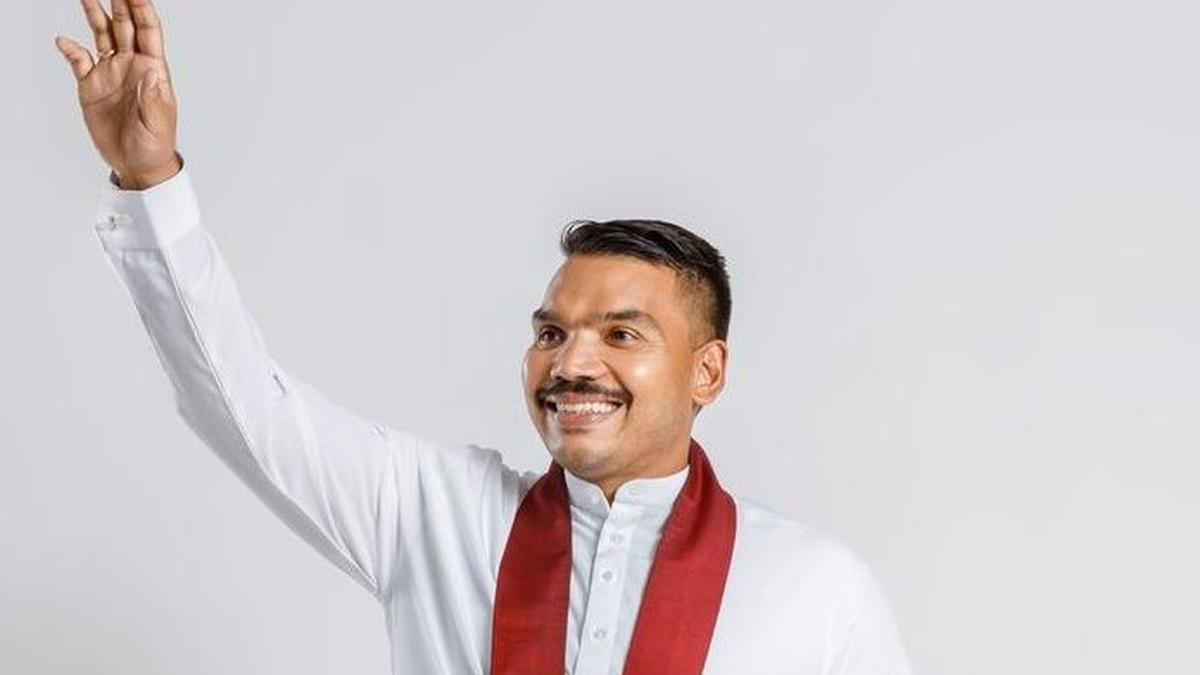Namal Rajapaksa, the Sri Lankan parliamentarian and the son of former President and Prime Minister Mahinda Rajapaksa, on Tuesday sent a caution note to the government in Colombo asserting that the island nation can’t let its territory to be used to harm India’s security interests.
Rajapaksa said Sri Lanka welcomes investment from all countries in a transparent manner and emphasised that Sri Lankans would never allow their land or sea to be used against India.
In an exclusive conversation with Firstpost at the News18 Rising Bharat Summit, Namal Rajapaksa underlined the importance of strengthening regional partnerships—especially with India—amid shifting global dynamics and growing Chinese influence in the region.
Sri Lanka will never allow its land or sea to be used against India: Rajapaksa
Emphasising on India’s strategic interests in the region amid a Chinese push, Rajapaksa said to Firstpost, “We Sri Lankans always ensure that our land or sea will never be used against India. So, it’s all about trust. Today, India is in a better position to work with Sri Lanka on trade because of the economic situation. I believe it’s about moving forward rather than dwelling on the past.”
“Well, I think the government of Sri Lanka is transparent and works closely with the best investments that come into the country, rather than being overly focused on any one nation in particular,” Rajapaksa said.
Impact Shorts
More ShortsHe is the eldest son of Mahinda Rajapaksa and a former Minister of Youth and Sports (2020–2022), and he was the SLPP’s presidential candidate in the 2024 presidential election.
Recovery from economic crisis and India’s stand
When asked about the economic crisis in Sri Lanka and India’s role in it, Rajapaksa acknowledged New Delhi’s critical support, including $4 billion in aid.
“I think Sri Lanka has gone through a tough time, and India has always stood by us—especially during COVID and the recent economic crisis. India extended $4 billion in assistance and also accounted for the highest number of tourist arrivals in Sri Lanka. Now, investments are also flowing in from India. At the same time, trade between our two countries stands at around $5 billion,” Rajapaksa said.
Rajapaksa calls for deeper India-Sri Lanka trade ties
While stressing the new and changing global norms during the Trump administration and the evolving geopolitical landscape, Rajapaksa said Sri Lanka will feel the impact of US tariffs, making it crucial to strengthen ties with regional partners—particularly India.
“India is one of the world’s largest and fastest-growing economies. I believe Sri Lanka can benefit from India’s growth, and likewise, India can benefit from Sri Lanka’s trade potential and strategic position in logistics,” he said.
On India–Sri Lanka relations in the years to come, Rajapaksa said “I believe India–Sri Lanka relations will grow even stronger. It’s time we realise that the West won’t always be there for us, but our region will. As a political party, we’ve understood this and built strong ties with regional partners. I think the coming decade is the right time for South Asian countries to work more closely together.”
‘Local issues shouldn’t become national flashpoints’: Rajapaksa on Palk Strait fishing tensions
When Firstpost asked Rajapaksa about the ongoing fishermen issue and tensions on both sides, with Sri Lanka arresting Indian fishermen, he said it negatively impacts Sri Lankan fishermen and called for a practical approach, urging that local issues should not be turned into national ones.
“It has been there for a very long time. I think more than the fishing issue, it’s the fishing method—specifically bottom trawling—that is concerning. It’s illegal and damages the environment. At the same time, it’s a very sensitive issue because for Sri Lankan fishermen, this is their main source of income, and they use small boats,” Rajapaksa said.
He said that the central government should handle the matter with more understanding and focus on people’s concerns.
When asked about the possibility of connecting the two nations through a bridge over the Palk Strait, Rajapaksa said, “I think the Palk Strait issue needs further consultation with the communities involved. There should be a strong dialogue between the two countries to assess its feasibility and understand the potential environmental impact. I propose that Sri Lanka form a Parliamentary Select Committee to make a decision on the matter.”
Rajapaksa on post civil war situation in Sri Lanka
When asked about how Sri Lanka plans to move forward without letting the past civil war overshadow its efforts to build unity between communities, Rajapaksa said most former LTTE (the Liberation Tigers of Tamil Elam) members have been rehabilitated, and northern Sri Lanka—once the worst hit—is now doing well in terms of the economy and agriculture.
“I believe the Tamil community was caught in the crossfire during the war. The conflict was against the LTTE, and Prabhakaran, being Tamil, used Tamil youth as human shields and suicide bombers. As a result, the community suffered greatly. That era is behind us now. We need to focus on the next step—bringing long-term economic stability to the country.”
‘It’s up to the people’: Namal Rajapaksa on political comeback
On whether the Rajapaksa family is planning a political comeback, he said to Firstpost"I believe it ultimately comes down to the will of the people. I’m currently leading my party. It’s a young and dynamic team, and we’re focused on addressing the needs of the next generation. I think people are beginning to see that more clearly now."
PM Modi’s proactive role in deepening ties
He further highlighted Indian Prime Minister Narendra Modi’s role in the India-Sri Lanka relations.
“PM Modi has a major role to play, as he’s a rising global and regional superpower. He shares a strong rapport with the Sri Lankan leadership and has built good relationships across the region. I believe his vision for a sustainable India will also bring significant benefits to Sri Lanka.”


)

)
)
)
)
)
)
)
)



